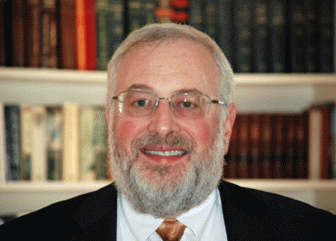My guest today is Brian Alexander, who is running for judge in the 9th Subcircuit of Cook County, Illinois. Welcome to OpEdNews, Brian.
Joan Brunwasser: I've never interviewed anyone running for a judgeship and I plead ignorance regarding how the process works. I'm hoping you can fill me and our readers in on this. Let's start with the basics. What does a judge in the 9th Subcircuit do?
Brian Alexander: In Illinois, Circuit Court judges are elected from the counties in which they serve. To encourage diversity, Cook County is divided into 15 sub-circuits, so some judges are elected from the sub-circuits and some are elected in county-wide elections. Where you are elected from does not determine where you would be assigned, as you could be assigned to any court in the county (although new judges almost always spend some time in traffic court). The 9th Subcircuit is just the political jurisdiction from which a judicial candidate is elected.
When a judge who was originally elected from a sub-circuit retires or otherwise leaves office, the replacement is chosen in the next general election. In this upcoming election, there are three vacancies in the 9th Subcircuit. They are are known on the ballot by the name of the judge who last held each position. For the March 18th election in the 9th Subcircuit, there are three vacancies, known as the Goldberg, Meyer and Preston vacancies. I am running in the Preston vacancy, which is the most crowded, with five candidates.
Election for judge is run in the familiar Democratic and Republican primaries, so there is a primary election to select the candidate who will represent each party in the November 2014 general election.
The 9th Subcircuit is a large district, which consists primarily of the 49th and 50th Wards in Chicago, Evanston Township, Niles Township (all of Skokie and Lincolnwood, much of Morton Grove, and a small piece of Niles), most of Wilmette and pieces of Glenview, Northfield, and small sections of other Chicago wards (including much of Peterson Park). It is an odd shaped district; a map can be found at my website, http://brianalexanderforjudge.org/map-1.html
JB: Well, that was interesting - and helpful. I'm curious: why would you select a vacancy which is the most crowded? Doesn't that put you at a disadvantage? Or am I missing a crafty calculation in there, Brian?
BA: There were three vacancies from which to choose to run in. At first, most of the candidates for all of the races (there were 11 in all) were taking petitions around for all three slots. Then, when it came time to file, each candidate had to pick one. We started with three, but narrowed to one because two of the candidates indicated they were running in each of the other two slots. Those candidates seemed to have the backing of all the major office holders in the area, so running against them seemed inadvisable. That left the third, the Preston slot, as the slot in which I was most likely to get local leaders interested. Apparently, four other candidates made similar calculations. From the perspective of backing, I now have the support of Illinois State Senator Ira Silverstein, Ald. Debra Silverstein of the 50th ward in Chicago, Cook County Commissioner Larry Suffredin, the Mayor of Skokie [George Van Dusen], and the Skokie Caucus party as backers.
Yes, it is a disadvantage to have the vote splintered, but it could also be an advantage if any candidate has a base that comes out to vote. This is a "small election"--first it is a primary, which the majority of the voters ignore. Second, on the Democratic ballot, the judicial races are the most contested -- and since many people don't know about individual judicial candidate, they tend to skip them. Turnout and voting for judges is expected to be between 12 to 20 percent of registered voters. This is why mobilizing one's base and getting them out to vote is key.
JB: I get it now, thanks. How did you decide to run for judge? Is this your first time? Why now?
BA: This is my first time running for any public office.
I suspect that most lawyers with courtroom practices think they can be judges. What brought me to the decision to run was, in a large part, that, in the past several years, a significantly larger share of my practice has included being appointed by family courts to represent minor children in custody disputes. In that role, I have found that I have been able to make significant contributions towards bringing some stability and peace into battling families. It has proven to be highly satisfying to have seen a number of successful and peaceful conclusions. I reached the decision that as a judge, I could make a direct difference in people's lives. That is what propelled me to run at this time.
JB: So, do only lawyers get to be judges? I may have known this at some point but don't recall right now.
BA: In order to be a judge the statute only requires that you have a law license for at least two years.
It has happened that unqualified persons with little legal experience have become judges, but it is a sad commentary on our system.
(Note: You can view every article as one long page if you sign up as an Advocate Member, or higher).






